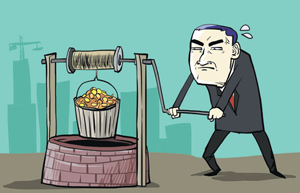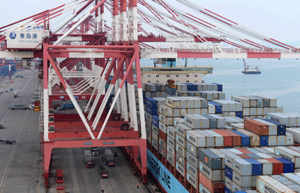"Measures to contain local government debt, curb shadow banking and tackle excess capacity, high energy demand and high pollution will reduce investment and manufacturing output (in China)," said the World Bank.
Growth across the developing countries in the region will likely slow to 4.8 percent this year, down from 5.2 percent in 2013, in large part due to slowdowns in Indonesia and Thailand. Indonesia was affected by a series of short-term needs for external financing that scared investors away earlier this year. Thailand is still suffering from the impact of political instability.
The bank, however, did not cut its outlook for every economy in the region. For instance, it expects the Philippines' growth to come in at 6.4 percent this year and 6.7 percent in 2015. The country's government has slightly higher targets.
"Strong domestic demand would continue to drive overall growth but will depend heavily on the ability of government to ramp up spending," the World Bank said in its recent report, titled "Enhancing Competitiveness in an Uncertain World."
Growth in the region could be negatively affected by weaker-than-expected global trade and an anticipated rise in interest rates in North America and Europe over the next couple of years.
Best poised to grow rapidly are countries like Malaysia, Vietnam and Cambodia, said the World Bank. All three could benefit from increases in export demand and, most importantly, from improvements in regional supply and value chains, the bank said.
Malaysia could grow 5.7 percent this year, an upgrade from the 4.9 percent forecast in April. Boosts in exports are behind the upgrade. Meanwhile, Cambodia is expected to grow 7.2 percent this year, thanks to increased garment exports.
The linchpin of all this growth will be domestic consumption, which the bank called "robust".
In Malaysia, for example, the labor market has grown stronger, boosting domestic spending.
In the Philippines, remittances from workers abroad are driving up spending. Higher consumer spending accounts for about half of economic growth in the 100-million-strong country. In the second quarter of this year, household consumption rose 5.3 percent year-on-year, faster than the average over the last decade and a half, said the World Bank.
Another bright spot among the member states of the Association of Southeast Asian Nations is Myanmar, whose economy is projected to grow 8.5 percent this year and the next. Recent and ongoing institutional and policy reforms and re-engagement with the international economy will drive growth in the emerging economy.
|
 |
 |
| Time for government to continue cracking whip for sustained progress | Slower growth likely in 2015 |
